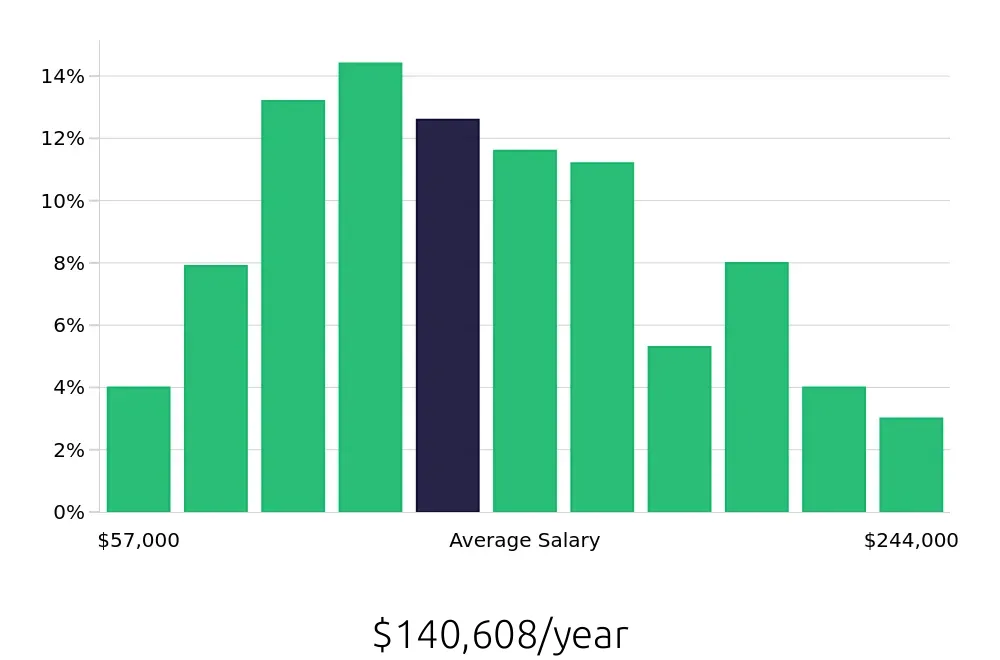What does a Hardware Engineer do?
A Hardware Engineer works on designing, developing, and testing computer hardware. This role requires a mix of creativity and technical skill. Hardware Engineers collaborate with software engineers to ensure that the hardware meets the performance needs of the software. They must stay current with technological advancements and apply this knowledge to create innovative hardware solutions.
The duties of a Hardware Engineer include analyzing technical data, working with circuit designs, and troubleshooting hardware problems. They use specialized tools and software to simulate and test their designs. Hardware Engineers also work in teams to develop prototypes and ensure that final products meet safety and performance standards. Attention to detail and problem-solving skills are essential for this role.
How to become a Hardware Engineer?
Becoming a hardware engineer offers an exciting opportunity to work with cutting-edge technology and contribute to innovation. The process involves gaining the right education and experience. Following a structured path helps ensure success in this technical field.
Here is a step-by-step guide to becoming a hardware engineer:
- Get a bachelor's degree in electrical engineering or a related field. A strong foundation in science and math is essential.
- Complete internships or co-op programs during college. This hands-on experience is invaluable.
- Earn relevant certifications, such as the Certified Hardware Engineer (CHE) certification. Certifications boost your resume and show dedication.
- Build a professional portfolio. Include projects, internships, and any relevant coursework. This showcases your skills to potential employers.
- Start applying for jobs. Look for positions that match your skills and interests. Networking and attending job fairs can also help find opportunities.
How long does it take to become a Hardware Engineer?
The journey to becoming a hardware engineer involves a series of educational and experiential steps. Most professionals start with a bachelor's degree in electrical engineering or a related field. This typically takes four years of full-time study. During this time, students learn about circuits, electronics, and computer architecture. Some may choose to pursue a master's degree, which adds an additional two years.
After completing their education, aspiring hardware engineers gain practical experience. Internships during college can provide valuable insights and skills. Post-graduation, entry-level positions in tech companies help build a strong foundation. These roles often involve working under more experienced engineers. Over time, professionals may specialize in areas such as embedded systems, networking hardware, or semiconductor design. Each specialization requires continued learning and skill development. The combination of education and experience helps hardware engineers reach their full potential.
Hardware Engineer Job Description Sample
We are looking for a skilled Hardware Engineer to join our team and contribute to the development and optimization of our hardware products. The ideal candidate will have a strong background in hardware design, testing, and implementation. This role requires a blend of technical expertise, problem-solving skills, and a keen eye for detail.
Responsibilities:
- Design and develop hardware components, circuits, and systems.
- Collaborate with software engineers to integrate hardware and software components seamlessly.
- Conduct thorough testing and debugging of hardware prototypes to ensure optimal performance.
- Evaluate and select appropriate hardware components and materials based on project requirements.
- Prepare detailed technical documentation and schematics for hardware designs.
Qualifications
- Bachelor's degree in Electrical Engineering, Computer Engineering, or a related field.
- Proven experience as a Hardware Engineer or similar role.
- Proficiency in hardware design tools and software (e.g., Altium, KiCad, Eagle).
- Strong understanding of electronics, circuit design, and microelectronics.
- Experience with PCB design and prototyping.
Is becoming a Hardware Engineer a good career path?
A career as a hardware engineer offers a unique blend of technical skills and problem-solving abilities. Hardware engineers design and develop electronic systems, from computer chips to communication devices. They work closely with software engineers to ensure seamless integration of hardware and software components. This role demands a strong foundation in physics, mathematics, and computer science. Opportunities span various industries, including automotive, aerospace, and consumer electronics.
Working as a hardware engineer presents several advantages and challenges. Consider these pros and cons before pursuing this path. Here are some key points to weigh:
- Pros:
- Creative problem-solving: Design innovative hardware solutions.
- High demand: Strong job prospects across industries.
- Technological impact: Contribute to cutting-edge technology.
- Cons:
- Complexity: Requires deep knowledge of electrical engineering.
- Long hours: Projects often demand extended work hours.
- Stress: High pressure to meet deadlines and deliver quality.
Choosing a career as a hardware engineer can lead to a fulfilling and impactful professional journey. This role allows individuals to shape the technology of tomorrow. Balancing the pros and cons ensures a well-informed decision for those considering this path.
What is the job outlook for a Hardware Engineer?
Looking for a stable career in the tech world? The role of a Hardware Engineer offers promising prospects. The Bureau of Labor Statistics (BLS) reports an average of 4,600 job positions opening each year. This steady demand highlights a growing need for skilled professionals. The job outlook for Hardware Engineers is positive, with an expected increase of 4.6% from 2022 to 2032.
One of the key attractions of this field is the competitive compensation. According to the BLS, the average national annual salary for Hardware Engineers stands at $147,770. This figure reflects the value placed on their expertise and the specialized skills they bring to the table. In addition to the annual compensation, Hardware Engineers enjoy an average hourly wage of $71.04, underscoring the financial rewards of this career path.
The combination of steady job growth and strong compensation makes the career of a Hardware Engineer appealing. It offers both job security and the potential for a lucrative income. With the tech industry continuing to evolve, the demand for skilled Hardware Engineers is set to remain robust. Aspiring professionals can look forward to a rewarding career with plenty of opportunities.
Currently 249 Hardware Engineer job openings, nationwide.
Continue to Salaries for Hardware Engineer


